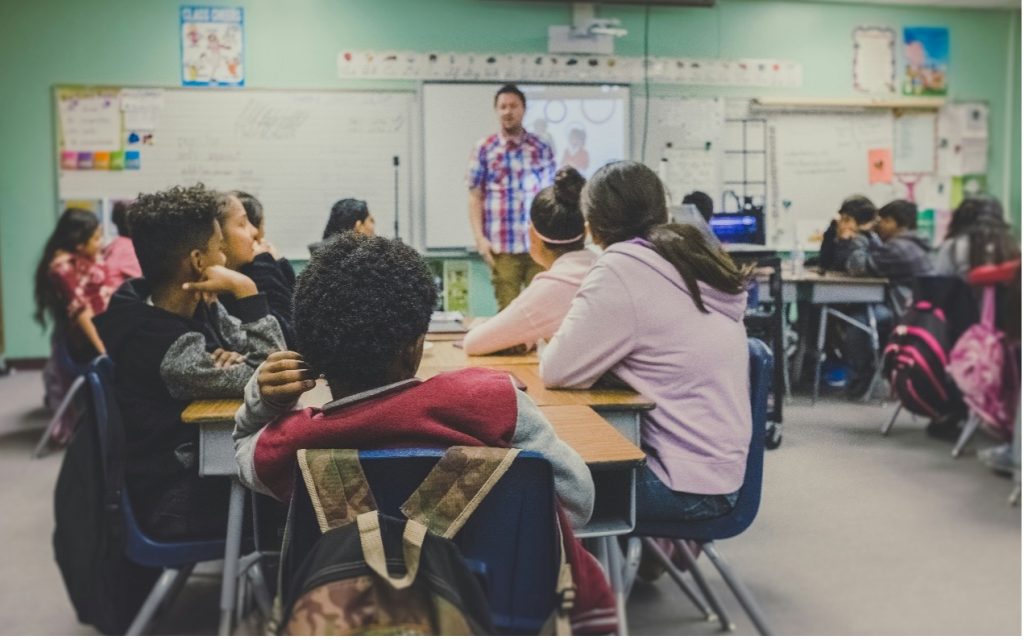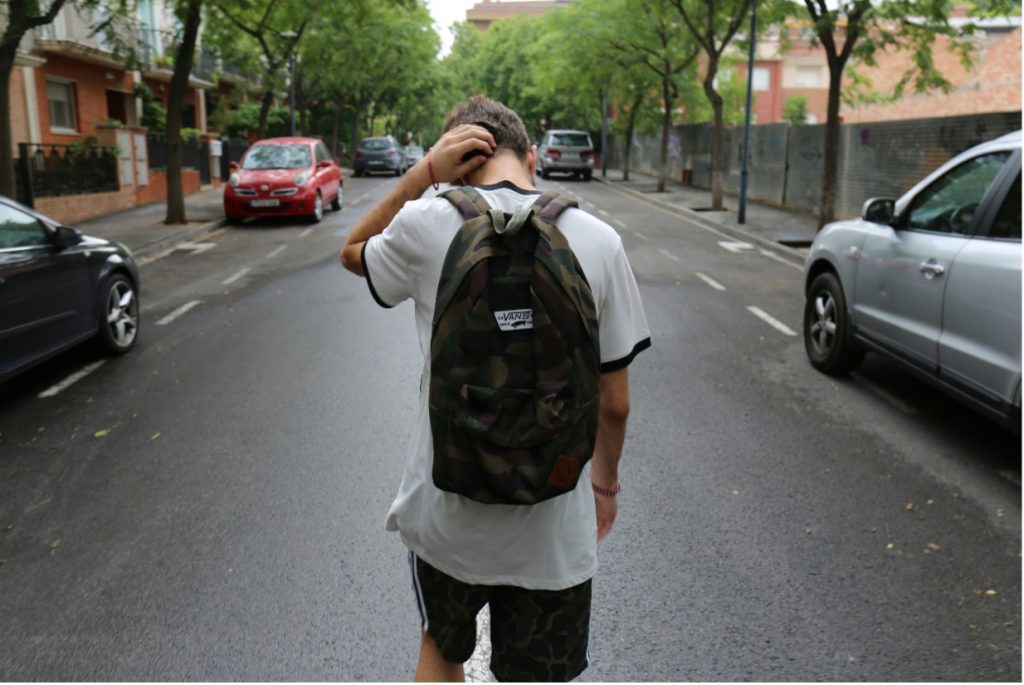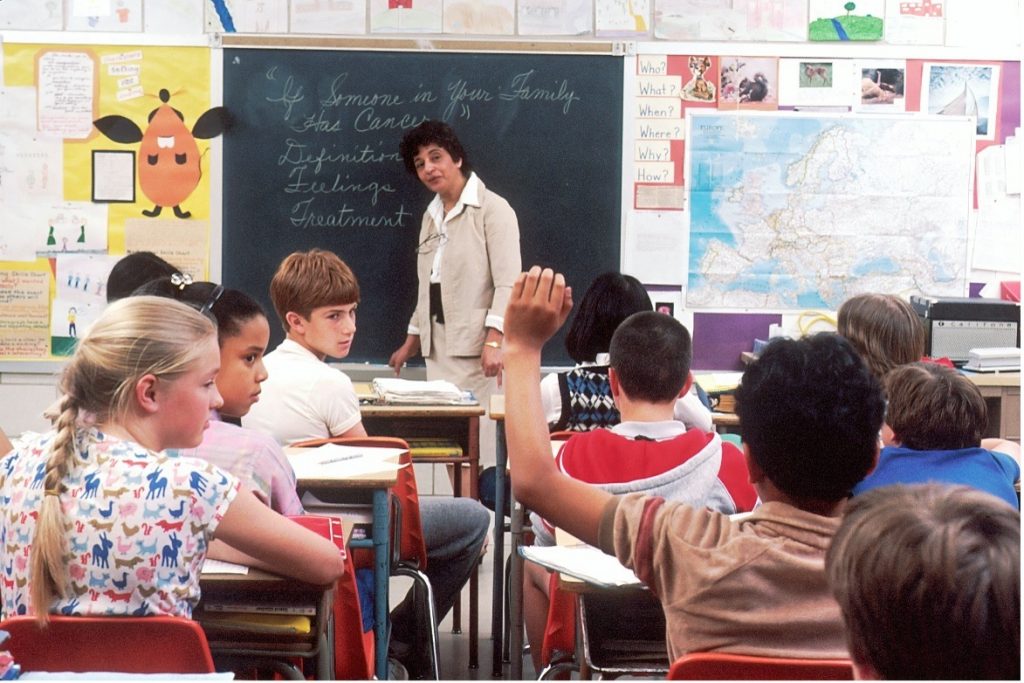Within the UK, the variety of younger folks aged 5 to 16 who’ve skilled a psychological well being downside is staggeringly excessive (NHS Digital, 2020), with simply over 20% of kids needing psychological well being assist (NCSR, 2023). Younger adolescents characterize a susceptible group for the onset of a long-term incapacity (Solmi et al., 2021). Presently, there’s an inescapable want to supply the mandatory assist for this inhabitants. One technique for a large outreach is implementing common preventative interventions in colleges. The general proof up to now for common interventions is nevertheless different at greatest (Cipriano et al 2023) and a few research have really proven it to be detrimental to psychological well being (Montero-Marin et al 2022, Sanchez et al 2018).
Such interventions tackle the danger elements that underlie some widespread psychological well being issues (Nehmy & Wade, 2014). As an illustration, problem regulating feelings is a well-documented threat for internalising issues (Cole & Diaz, 2024). Nevertheless, many approaches have targeted on single emotion regulation methods (e.g., solely mindfulness), which may have restricted worth when utilized in isolation (Burckhardt et al., 2018). In the meantime, dialectical behaviour remedy (DBT) goals to equip one with a number of methods, which could be tailor-made to totally different contexts and emotional depth (Linehan et al., 1991).
One facet of DBT – group expertise coaching – could be delivered in a classroom. A number of research point out that 20-30-session DBT-based packages could decrease emotion dysregulation (Martinez Jr et al., 2022) and enhance internalising difficulties (Flynn et al., 2018). Nevertheless, others discover no important advantages (e.g., Burckhardt et al., 2018). Moreover, the size of such interventions requires extra possible options that may be carried out in a college time period.
To look into these points, Harvey et al. (2023) got down to study an 8-session, DBT-based common intervention known as WISE Teenagers and its affect on the emotional and social well-being of younger adolescents in Australia. The researchers additionally assessed the function of “homework”, i.e., participating in learnt expertise at residence, in enhancing the intervention outcomes and serving to generalise the gained expertise. The findings name for a deeper understanding of DBT-based approaches in class settings.

DBT-based approaches, in concept, may equip kids with a toolkit for emotional and social well-being.
Strategies
The preliminary proposal was for an RCT however to recover from the required 1000 individuals they wanted to evolve to the college’s timetables and exams and so on. This meant that random allocation wasn’t attainable with faculty allocation of courses inside 12 months teams being allotted as an alternative.
4 Australian colleges participated within the research. College students have been allotted to both intervention or management teams primarily based on their 12 months and each teams have been assessed at baseline, instantly post-intervention, and at a 6-month follow-up.
WISE Teenagers
8 weekly classes, every lasting 50-60 minutes.
Content material: mindfulness, emotion regulation, misery tolerance, interpersonal effectiveness.
Session construction: class mindfulness – revision – new content material – homework.
Management group
The standard Well being and Bodily Schooling class (matched for size and frequency).
Content material included: bodily modifications throughout puberty, diet, cyber security, drug schooling, and managing dangers.
The measures have been self-report scales, for which the authors report good inner consistency and good-to-excellent reliability. The scales assessed:
melancholy
anxiousness
life high quality
tutorial resilience
high quality of parent-child relationships
emotion consciousness and
regulation
To look at “residence apply”, kids have been requested to point how usually they’ve carried out the learnt ability in the course of the week. Lastly, the intervention group additionally rated how a lot they loved the intervention out of 10 and had a possibility to supply suggestions on potential enhancements.
Outcomes
Individuals have been 1,071 college students from 12 months 8 and 9 (imply age 13), predominantly from excessive socio-economic standing (SES) areas (98.7%). The retention charges have been 72% or above throughout each teams and all evaluation factors. There was a major under-representation of males within the post-intervention evaluation, seemingly as a consequence of a non secular vacation in one of many colleges (single-sex male).
The findings, general, indicated that the WISE Teenagers group (n=563) had a statistically important deterioration in emotional and social wellbeing in comparison with the management group. As an illustration, the intervention group had:
Poorer emotional regulation (χ2 (1, 681) = 7.08, p = .01)
Improve in melancholy (t (2598.99) = −4.65, p< .001; d = −0.22; 95% CI = −0.35 to −0.08)
Improve in anxiousness (t (2590.65) = −5.89, p < .001; d = −0.28; 95% CI = −0.41 to −0.14)
Elevated emotion dysregulation (t (2307.49) = −4.03, p < .001; d = −0.19; 95% CI = −0.33 to −0.05)
decrease emotional consciousness (t (2506.21) = 2.60, p = .01; d = 0.12; 95% CI = 0.02 to 0.26)
decrease high quality of life (t (2483.61) = 2.40, p = .02; d = 0.11; 95% CI = 0.03 to 0.25)
Poorer mother-child relationship high quality (t (1784.49) = 3.32, p= .001; d = 0.16; 95% CI = 0.01 to 0.31)
Poorer father-child relationship high quality (t (1585.36) = 3.24, p = .001; d = 0.17; 95% CI = 0.02 to 0.33) each instantly post-intervention and at 6-month follow-up
Nevertheless, these adolescents who have been extra engaged with the homework (30% practised frequently) confirmed decrease general difficulties, higher father-child relationship high quality, and decrease anxiousness and melancholy.
Of their suggestions, adolescents highlighted the necessity for enhancing the intervention’s supply and content material. General, it seems that the intervention could possibly be much less formally structured, providing less complicated explanations of the methods which might be related to their lives and possible to grasp inside the 8 weeks.

The WISE Teenagers intervention group had a deterioration in emotional and social well-being.
Conclusions
The WISE Teenagers intervention appears to hurt adolescent well-being, therefore, the authors don’t suggest this intervention implementation in colleges and additional commenting that “These findings elevate dialogue as to the potential for iatrogenic hurt from common interventions“
These findings have pointed in the direction of our gaps in understanding of what parts of DBT could possibly be most helpful for younger teenage populations and the way greatest to ship them i.e. common interventions vs focused interventions.

The findings elevate dialogue as to the potential for iatrogenic hurt from common interventions.
Strengths and limitations
The metaphorical elephant within the room with this paper is that the research used non-randomised allocation to suit across the faculty curriculums and though there have been different research the place this has been performed (Nehmy et al 2015) it does inherently cut back the standard of the outcomes.
The authors acknowledge this and have added in some measures e.g. managed for participant age, as one group was considerably older. Alignment with the college curriculum must be thought of amongst sensible limitations in future long-term faculty cohort research.
One other limitation is the potential lack of generalisability of the findings to younger populations with decrease SES backgrounds. Additionally, although the teams have been matched in course size, the content material is arguably, strikingly totally different.
Lastly, this paper stands out for exploring the house apply. Nevertheless, residence apply measures relied on participant self-report, which can have been influenced by social desirability. But, it’s intriguing to see that implementing the talents at residence at the least as soon as per week was related to extra constructive results. This research opens up the avenue for additional researching the function of residence apply within the results of college interventions.
The research does bear a number of strengths. Firstly, the analysis staff consulted a senior scientific psychologist to make sure the content material of WISE Teenagers was pertinent to adolescents. Nevertheless, as seen in participant suggestions, the content material could be improved additional to extend engagement and relevance. Future analysis may discover participant suggestions in better element and steadiness it with specialists’ suggestions.
One other energy of this research is the nice reliability of the scales, although some scales with reliability >.90 (e.g., High quality of Mum or dad-Little one Relationships) could point out redundancies and must be shortened (Tavakol & Dennick, 2011).
Lastly, Harvey and colleagues tackle the analysis hole by taking a look at a short-term intervention that gives younger folks with a repertoire of emotion regulation expertise. It is a step ahead in the direction of creating and implementing an intervention in colleges (simply possibly not a common one).

We’ve gaps in understanding of what parts of DBT could possibly be most helpful for younger teenage populations.
Implications for apply
Because the authors concluded, WISE Teenagers isn’t really helpful because it appears to pose iatrogenic hurt to younger adolescents. Nevertheless, because the robustness of this research was compromised as a consequence of implementation points, we must be cautious about deciding towards DBT-based interventions as an entire. Exploring the explanations behind the deterioration in well-being and finishing up a randomised managed trial would assist us make clear the utility of this intervention in colleges. One potential motive is that kids could have felt overwhelmed with the variety of duties for homework within the WISE Teenagers group. Nevertheless, I might be curious to see if lacking out on the same old class (e.g., studying about bodily modifications) could worsen younger folks’s well-being, too.
In the end, the goal is to supply assist that may be each efficient and related to this inhabitants. The research briefly touched on the acceptability of the intervention, nevertheless it must be explored intimately in future research. Importantly, younger folks must be a part of the intervention improvement course of, as it seems that regardless of collaboration with a scientific skilled, WISE Teenagers was reported to be “considerably attention-grabbing” (Harvey et al., 2023, p.7) and at instances complicated. Researchers could concentrate on tips on how to current the fabric in a manner that makes it extremely related to adolescents. Presumably, this may encourage better residence apply and general better constructive good points from the intervention.
Lastly, this is likely one of the pioneering research of the usefulness of a number of well-being methods. Nevertheless, kids’s suggestions indicated that the intervention could have included too many alternative matters, dedicating 2 classes per every technique. This presents a problem for future analysis and college apply, as, ideally, the intervention would match the size of the college time period. I agree with the authors that our enthusiasm for creating an intervention requires an identical analysis base and, so as to add to that, a detailed collaboration with the younger folks to base the interventions on their wants.

A steadiness is required between the core ideas of DBT and a possible intervention in colleges.
Assertion of pursuits
No battle of curiosity to reveal.
Hyperlinks
Main paper
Harvey LJ, White FA, Hunt C. et al (2023) Investigating the efficacy of a dialectical behaviour therapy-based common intervention on adolescent social and emotional well-being outcomes. Behaviour Analysis and Remedy, 169.
Different references
A.L. Sanchez, D. Cornacchio, B. Poznanski, A.M. Golik, T. Chou, J.S. Comer. The effectiveness of school-based psychological well being companies for elementary-aged kids: A meta-analysis. Journal of the American Academy of Little one and Adolescent Psychiatry, 57 (3) (2018), pp. 153-165
Burckhardt R, Manicavasagar V, Batterham PJ. et al (2017) Acceptance and dedication remedy common prevention program for adolescents: a feasibility research. Little one and Adolescent Psychiatry and Psychological Well being, 11, 1-10.
Youngsters and younger folks’s psychological well being in 2023. Nationwide Centre for Social Analysis web site. Final visited 5 July 2024.
Cipriano, C., Strambler, M. J., Naples, L., Ha, C., Kirk, M. A., Wooden, M., Sehgal, Ok., Zieher, A. Ok., Eveleigh, A., McCarthy, M., Funaro, M., Ponnock, A., Chow, J. C., & Durlak, J. (2023). The state of the proof for social and emotional studying: A up to date meta-analysis of common school-based SEL interventions. Little one Improvement.
Cole E, Diaz A. (2024) Particular emotion regulation deficits differentiate and mediate the connection between antagonistic childhood experiences and internalizing psychopathology. Journal of Affective Problems Reviews, 16, 100722.
Flynn D, Joyce M, Weihrauch M. et al (2018) Improvements in Apply: Dialectical behaviour remedy–expertise coaching for emotional downside fixing for adolescents (DBT STEPS‐A): analysis of a pilot implementation in Irish submit‐main colleges. Little one and Adolescent Psychological Well being, 23(4), 376-380.
Linehan MM, Armstrong HE, Suarez A. et al (1991) Cognitive-behavioral therapy of chronically parasuicidal borderline sufferers. Archives of Common Psychiatry, 48(12), 1060-1064.
Martinez Jr RR, Marraccini ME, Knotek SE. et al (2022) Results of dialectical behavioral remedy expertise coaching for emotional downside fixing for adolescents (DBT STEPS-A) program of rural ninth-grade college students. College Psychological Well being, 14(1), 165-178.
Psychological Well being of Youngsters and Younger Individuals in England, 2020: Wave 1 comply with as much as the 2017 survey. NHS Digital web site. Final accessed 5 July 2024.
Montero-Marin, J., Allwood, M., Ball, S., Crane, C., De Wilde, Ok., Hinze, V., & MYRIAD Crew. (2022). College-based mindfulness coaching in early adolescence: What works, for whom and the way within the MYRIAD trial? Proof-Based mostly Psychological Well being, 25, 117–124.
Nehmy TJ, Wade TD. (2015) Lowering the onset of adverse have an effect on in adolescents: Analysis of a perfectionism program in a common prevention setting. Behaviour Analysis and Remedy, 67, 55-63.
Solmi M, Raduà J, Olivola M. et al (2021) Age at onset of psychological issues worldwide: large-scale meta-analysis of 192 epidemiological research. Molecular Psychiatry, 27(1), 281-295.
Tavakol M, Dennick R. (2011). Making sense of Cronbach’s alpha. Worldwide Journal of Medical Schooling, 2, 53-55.








